Are Democrats Taking Black Women For Granted When They're Needed Most?
Black women have been the party's most dedicated supporters
The rock-solid support that Black women have given the Democratic Party may be more rocky than solid lately.
This has been brought home to me since Joe Biden stepped back, and for the first time in history, a woman of color became the presidential nominee of a major party.
Stuck as I am in a rehab facility, I asked Black women who worked there how they were now going to vote. It gave me something to do.
And then it got interesting.
Of the first eight I queried, none said “Democratic.”
Zero. In the middle of Chicago.
Was I misunderstanding? “No,” a manager said. “I’ve been hearing a lot of this where I am.
“I would say it’s been 30” right-leaning Black women, she said, with an eye roll. How many staunch Democrats? “One. Maybe. Thirty-to-one.”
Eventually, I personally asked 20 Black women. Only seven said they’d definitely be voting for Kamala Harris. The other 13 mostly said they were undecided, and annoyed with Democrats. All of the 13 seemed to be leaning right, and three said they actually backed Donald Trump.
So that means that most of them are not committed to stopping a man prepared to do treason in the Oval Office. Not even to support a candidate who looks like them.
To me, they’re not just representatives of a demographic, members of the most loyal and important Democratic voting bloc. They’re people I love, who take good care of me.
“We need to listen to people and respond to their concerns,” said Elizabeth Austin, a Chicago-area Democratic consultant. “We cannot count on anyone because of demographics, and discount their needs as individuals.”


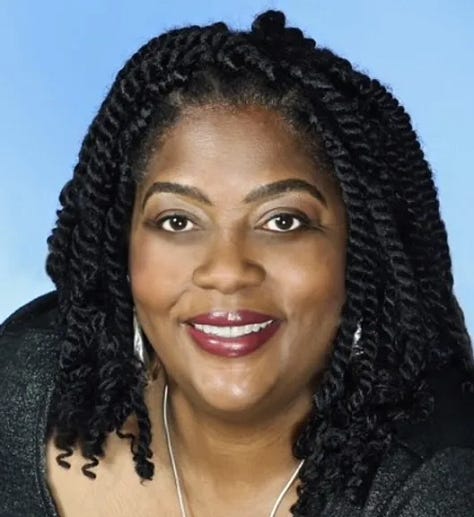
Several of the rehab facility women told me they were being taken for granted. And they weren’t shy about saying why they thought so.
“We get all these promises every time, and then afterward, (Democrats) don’t do what they promise.”
“I’ve been talking to my husband, and he says she jailed innocent Black men in California.”
“All these (undocumented immigrants) are coming in (to Chicago) and they’re getting housing and all this stuff, and we were born here, and we get nothing. We can’t afford to live here.”
“She lies just like (Trump) does. There’s not much difference.”
“I’m voting for my money.” Several of the women, hit hard by high prices, felt that Trump is better for their own personal economies. Several more appreciated that the first two pandemic stimulus checks were mailed during Trump’s tenure.
People who really need government to step up aren’t going to be touted off Trump just because he thinks immigrants eat cats. Not if they hope he might help them.
Voters have always thought this way, Will Rogers maintained 75 years ago.
No voter in the world ever voted for nothing; in some way he has been convinced that he has to get something for that vote. His vote is all that our Constitution gives him, and it goes to the highest bidder.
Most of the women I spoke to at Chicago’s Warren Barr Gold Coast rehab are certified nursing assistants (CNAs). The rest are registered nurses, therapists and housekeepers.
In a Sept. 4 speech, Harris used nurses as examples of people who didn’t earn as much as they should. But she lumped them together with cops and teachers.
This feeds into a Harris campaign theme: she says almost nothing about her race, but does stress that she was born into the middle class, and that she is the champion of that segment of society. She reiterated it during the Sept. 10 debate with Trump.
If CNAs are middle class, they might be hanging onto that status by their fingernails. Some earn $21 per hour, which makes it tough to afford independent housing in Chicago. That’s especially true today.
Some of the women here pick up shifts at other facilities on their days off. That means six- or seven-day weeks, or more, but during those weeks, “my bills get paid.”
According to Gallup, 87% of Black women identified as Democrats during the 2008 race that elected Barack Obama. That’s compared to 80% in 2016, 82% in 2020 and 74% in 2023. That’s still a lot, and, of course, a lot more than the 35% I got in my very unscientific poll.
During the same 15-year span, Gallup found Black men dropped from 82% Democratic to 58%. That’s a dramatic difference, but not quite as dynamic as it appears, since turnout for Black men is 12% less than for Black women.
So my current experience with the Warren Barr staff’s politics is not an outlier. It’s just moreso.
“I’ve heard some of that (Black female dissatisfaction) and a lot of that reflects local, not national, politics,” said Delmarie Cobb, a Chicago political consultant who was, in 1996, the first Black Democratic National Convention press secretary. “A lot of us are disappointed in the Democratic Party. But for me, it does not translate into walking away. You dig in your heels and make it better.”
I spoke to one middle-aged CNA who was dead-set against Trump. “There is no way possible that I would ever vote for that man,” she said. She added that there are several young Black women in her extended family who disagree.
“We will get them together,” she said. “We will educate them.” She said they would be invited to parties where they would hear what she and other women of her generation had to say.
“Unfortunately, a lot of what (younger Black women) say is parroting Trump,” said Cobb, who founded Ida’s Legacy, a political action committee intended to foster Black progressive female candidates. “He’s promoting victimhood, and has them convinced he somehow understands them, or at least tries.
“They’re not following politics close enough to understand,” she said. “I find it so discouraging.”
Most of the Dem-doubters I spoke with were under 30. One notable exception in the doubt department was the young CNA who said, “It’s creepy. I don’t know how anyone could vote for Trump.” She’s from Kansas.
Much of what the right-leaning women told me was questionable.
Trump did sign the bills for the stimulus payments, but he didn’t like doing it. He railed against the second one before giving in.
Harris didn’t send 1,500 black men to prison on marijuana charges as has been claimed by Trump, and repeated on social media hundreds of thousands of times. When she was San Francisco district attorney (2004-2010), it was only 45 sent to state prison, of all races. When she was California attorney general (2011-2017) 1,956 people were convicted, statewide, prosecuted in various jurisdictions. Few of those got time.
A couple of nurses said they were suspicious of Harris’ role in the wrongful murder conviction of Jamal Trulove in 2010, but Harris didn’t frame him, as claimed on Facebook. In the case of Kevin Cooper, convicted of multiple murders in 1983, Harris, as attorney general, had refused DNA testing that might conceivably have exonerated him. She and other officials unsure of the case backed the testing in 2018, but the results didn’t vindicate Cooper, and he remains in prison.



Local and national issues revolving around undocumented immigrants are tangled and fraught. But any credibility her opponent had on immigration evaporated months ago when he told GOP legislators to kill a respectable, hard-won bipartisan immigration bill so that he could run on a Biden immigration failure.
But it’s also true that the cost of living, especially housing, has risen in the last four years. Harris has interesting plans for that, including $25,000 grants for first-time homebuyers’ down payments.
That’s great for some people – maybe middle-class millennials and Gen Zs – but may not be practical for everybody.
Down payments are typically 10% of purchase price, which means the grants, by themselves, would only be enough for homes up to $250,000. There aren’t many of those in the Chicago area.
There are only two sizable towns in Illinois where there is such cheap housing stock. The closest is Rockford.
Rockford. That garden spot.
If one of my friends wants a more expensive house under this scenario, it might be tough in a country where many people are living paycheck to paycheck. The median savings of American Blacks is $2,110.
American renters of all races have a median net worth of about $10,400, according to the Federal Reserve, but that probably ain’t cash. That means unless Mommie comes through with a loan, Chicago’s hopeful homeowner has to sell her car.
“I’ve heard people are disappointed when (Democrats) come around once every four years with their empty promises, then they’re gone,” said Darlene Cannon, a grass-roots Evanston, Ill., Democratic leader. She said she was shocked but unsurprised to see a black couple “wearing MAGA clothes” in the Charlotte airport recently.
“I would like to see a Black agenda” from the Harris campaign, she said.
What should be on the agenda?
“The voter's rights bill, that's one.” The John R. Lewis Voting Rights Advancement Act of 2021 passed the House, then stalled. Joe Biden and Harris back it, but it’s still waiting for the Senate.
The bill is designed to prevent interference with the suffrage of southern Blacks and other people. It’s intended to shore up the Voting Rights Act of 1965, eviscerated by the Supreme Court in 2013.
Disenfranchisement is the deliberate theft and robbery of the only protection of poor against rich and black against white. — W. E. B. Dubois
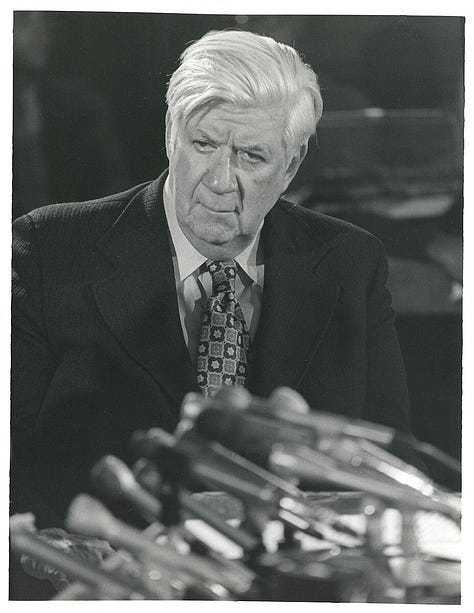
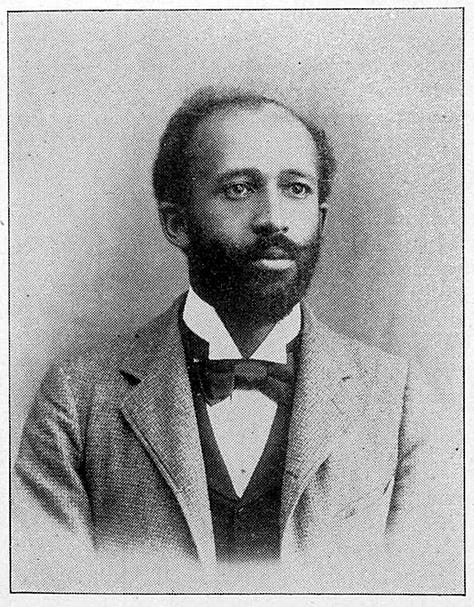

“The George Floyd bill.” The George Floyd Justice in Policing Act would ban racial and religious profiling by police, ban their use of chokeholds, and create a misconduct registry so hinky cops aren’t likely to be hired in another jurisdiction.
“And reparations.” Slavery reparations would be hard to imagine as a national campaign promise. But Evanston has put $5 million of its money where its mouth is. And the reasons the suburb’s doing it are illuminating.
Evanston’s reparations, paid for largely by a 3% marijuana sales tax since approved in 2019, feature a different way of parceling out up to $25,000 for housing aid: It can be used for down payments, mortgage assistance, renovations to existing homes — or no-strings cash. The money only goes to Blacks, or their descendants, who lived in Evanston between 1919 and 1969, when Blacks were pushed into one corner of town.
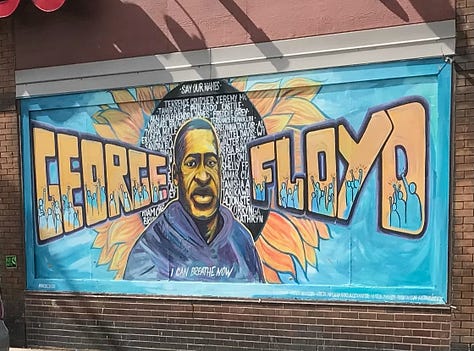
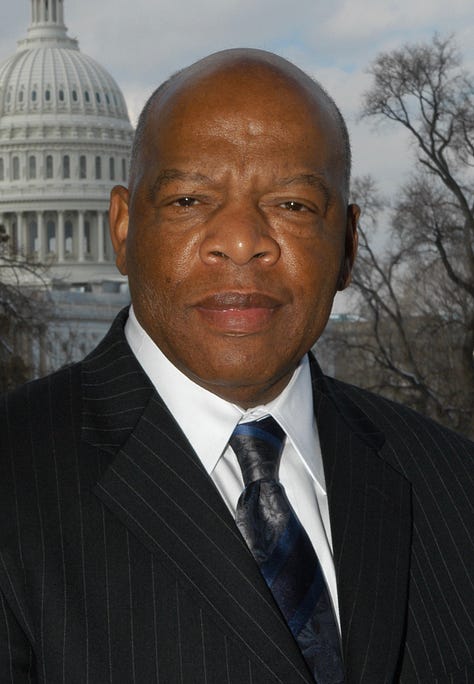

They were also largely denied mortgage financing, which prevented them from amassing generational wealth.
And that’s the key, and not just for Evanston. To ease the huge U.S. housing shortage of the Great Depression through post-WWII, the Federal Housing Administration insured inexpensive mortgages for massive numbers of new homes. The homes established generational wealth that was passed down to the Baby Boom generation and beyond.
But not for Black people. The FHA system effectively cut them out of the cheap mortgages. And FHA property appraisal methods largely prevented them from buying outside segregated Black areas even if they had the money. Even if the Black neighborhoods they were confined to were crowded and decrepit.
The FHA could have helped repair the damage wrought by the failure to give freed slaves 40 acres and a mule, as promised at the Civil War’s end. It was an opportunity missed.
Arguably, the Black community has never caught up. As of 2022, for every $100 of wealth that white households hold, Black households have $15.
A promise of reparations would probably get Blacks to the polls, but also offend lots of whites, including those in the majority on the Supreme Court. And Clarence Thomas, too, of course.
A conservative group has already sued Evanston, demanding slavery reparations go to white people, too.
Any Black agenda the Democratic National Committee might come up with, of course, won’t include reparations. Harris will never even mention reparations during her campaign, without prompting. I doubt she’ll even have anything like a Black agenda.
Conversely, few of the women I interviewed mentioned her name, without prompting. The interviews did take place before the debate, and it might be different now.
If past is prologue, there won’t be many Black women who actually vote Republican. The big question is whether enough of them will be sufficiently enthused to vote at all.
Many may be needed: CNN reported that exit interviews indicated 94% of Black women voted for Hillary Clinton in 2016, and she still lost.
Harris wouldn’t have to promise Black women reparations, or perhaps much at all, to get them on board. I think she should start by paying them a fraction of the attention she lavishes on the middle class.
I’m reminded of a story told by legendary Speaker of the House Thomas P. “Tip” O’Neill (1977-1987). It involved one of his former high school teachers who lived across the street from him when he was running for his first office, a seat on the Cambridge, Mass., City Council.
On the campaign’s last day, Elizabeth O'Brien told O’Neill, 22, "Tom, I'm going to vote for you tomorrow even though you didn't ask me."
He was floored. After all, he had shoveled her snow, mowed her lawn and raked her leaves for years.
"I didn't think I had to ask for your vote," he said.
She replied, "Tom, let me tell you something.
“People like to be asked."
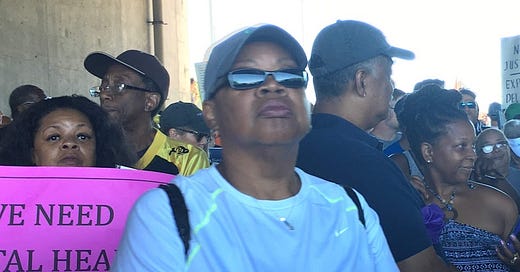


Also Wow. Only 4 comments for a great piece! I will be sharing. As usual, great reporting and and many thoughtful questions. Sorry that the 500 emails a day make it hard to get to some of the best things jamming the in box. I believe your take on the 40 acres comment is accurate. What might have been except for Lincoln's assassination. Hope rehab is helping. What you do best seems unimpaired.
Irv, the US government never promised that 40 acres & a mule, a single Union Army general, William Tecumseh Sherman did that, which means he had no legal basis to do that.